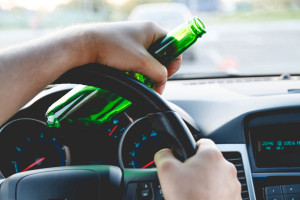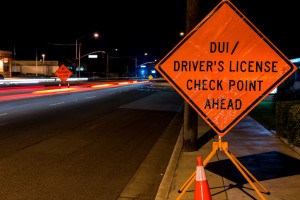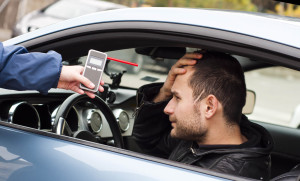DUI/DWI
The attorneys at the Law Office of Yan Katsnelson represent individuals in DUI/DWI cases in both New
York and New Jersey. The laws concerning driving under the influence in these States, and within certain
counties, differ in subtle and significant ways. However, in either state, navigating the legal landscape
depends upon securing knowledgeable and seasoned counsel capable of pursuing every available legal
option. The Law Office of Yan Katsnelson will work tirelessly with clients to obtain the most favorable
possible legal outcome.
New York DWI Law
New York DWI Law expressly bars reduction of DUI charges into lesser criminal offenses as a plea option.
However, defendants in a first offense DUI case in New York still have significant opportunities, pending
use of legal counsel and the case-specific nature of the charges, to negotiate favorable plea agreement
terms or obtain dismissal of charges.
As experienced criminal defense attorneys, the Law Office of Yan Katsnelson recognizes driving under
the influence is a serious offense that deserves the attention of law enforcement. However, there are
plenty of honest and hard working people that exhibit momentary lapses in judgment. Equally important
to recognize, just because a law enforcement officer concludes you were driving while intoxicated does
not mean in fact that you were. A police officer, prosecutor, or the machinery they use in determining
your intoxication can be in error, which is why no one should face a possible conviction for DWI without
an experienced attorney to defend them.
Below is a summary of DWI offenses and standard penalties in the State of New York.
First-offense DWI: A first-offense DWI conviction can result in a license revocation for six months, up
to a year in jail and a fine of up to $1,000. Repeat DWI convictions and aggravated DWI – a DWI with
a BAC (Blood Alcohol Content) higher than .08 – can bring much steeper penalties. Additionally, DWI
convictions remain on your record indefinitely, causing your auto insurance rates to rise.
DWI with a minor in the vehicle: The Child Passenger Protection Act, known as “Leandra’s Law,” makes
it a felony in New York to drive under the influence of drugs or alcohol with a child under age 16 in the
car. The penalties for this charge are harsh and include automatic license suspension, fines, jail time,
and the installation of an Ignition Interlock Device.
DWAI:
If your Blood Alcohol Content (BAC) was greater than .05 and less than .08, you can be charged with
DWAI (Driving While Ability Impaired). With the charge of DWI, the prosecutor will have to prove your
intoxication based upon the officer’s observations of your behavior, your BAC, and your performance
on the Field Sobriety Tests. With the charge of DWAI, the prosecutor only has to prove any extent of
impairment in your ability to drive.
Administrative Penalties
• First offense DUI carries administrative license suspension of 90 days.
• Refusals to submit under New York’s Implied Consent Laws results in automatic license
suspension of one year for first offenders.
• Reinstatement of license requires payment of reinstatement fees, completion of alcohol
assessment/treatment, and if applicable, installation of an Ignition Interlock Device.
Criminal Penalties
• Drivers charged with a first offense DUI in New York face no minimum incarceration
required, but do have the potential of being sentenced to incarceration pending the case-
specific nature of their case.
• All DUI convictions, including first offenses, require use of Ignition Interlock Device in New
York.
• Convictions of DUI can influence future DUI arrests, and the subsequent charges and
sentences, for a period of five years.
DMV Refusal Hearings
Should you refuse to submit to a chemical test to determine Blood Alcohol Content (BAC), your license
to drive in New York State will be revoked for one year. However, within ten-to-fifteen days of your
arraignment, the Department of Motor Vehicles (DMV) will schedule a Refusal Hearing. A separate
hearing from your criminal case, an Administrative Law Judge oversees the case and will make a
determination as to whether or not you knowingly and voluntarily refused the chemical test after first
being informed of the legal consequences.
Although distinct from your criminal case and Misdemeanor or Felony DWI charge, a DWI Refusal
Hearing is significant for a number of reasons. Not only can you lose your license for a year, be fined
$500, and get assessed $250 for three years by the DMV. But prosecutors can use your refusal at
your criminal DWI trial. In fact, the law permits prosecutors to cite your refusal to a chemical test
as “consciousness of guilt” against you.
Although an Administrative Law Judge can make his decision based merely on the reports provided
by the police, if the officer shows up for the hearing, your attorney will have an opportunity to cross-
examine him. More importantly, not only will a record be made of the police officer’s testimony, but
no prosecutor will be present to make objections or defend the police officer during the hearing.
Prosecutors often do not want officers to show up and testify at Refusal Hearings for this very reason.
Because an experienced criminal defense attorney may be able elicit testimony from a police officer that
is potentially damaging to the prosecution’s case, it is imperative that individual facing a Refusal Hearing
contact the Law Office of Yan Katsnelson as early in the process as possible to ensure the most favorable
legal outcome.
New Jersey DUI Law
The State of New Jersey takes DUI very seriously and imposes harsh penalties on people who break
this law. New Jersey’s implied consent law requires you to take a Breathalyzer test after an arrest for
DUI. If you refuse and are detained, a blood sample may be taken, and you’ll be subject to even harsher
penalties than the standard penalties for DUI infractions. If you are caught driving with a Blood Alcohol
Content (BAC) of .08% or higher, you will be cited for Driving Under the Influence (DUI).
The following are the penalties for driving under the influence in the State of New Jersey. They vary
according to BAC level and number of offenses:
First offense with BAC of .08%, but less than .10%: Loss of driver’s license for three months, a fine
ranging from $250 to $400, mandatory 12 to 48-hour stay at an Intoxicated Driver Resource Center
(IDRC) with related fees, and insurance surcharges of $1,000 a year for three years. You may also be
required to spend up to 30 days in jail.
First offense with BAC of .10% or higher: Loss of driver’s license for seven months and up to one year,
$300 to $500 fine, mandatory IDRC stay of 12 to 48-hours with related fees, and insurance surcharges of
$1,000 a year for three years. You may also be required to spend up to 30 days in jail.
Second offense within 10 years of the first offense: Loss of driver’s license for at least two years, pay
fines of $500 to $1,000, insurance surcharges of $1,000 a year for three years, mandatory IDRC stay of
12 to 48-hours with related fees (or 30 days of community service), and a possible jail stay of 48-hours
to 90 days.
Third offense within 10 years of the second offense: Loss of driver’s license for 10 years, pay a $1,000
fine, insurance surcharges of $1,500 a year for three years, mandatory IDRC of 12 to 48-hours with
related fees (or up to 90 days of community service), and a possible jail stay of 180 days.
Intoxicated Driver Resource Center
The State of New Jersey has an
Intoxicated Driver Resource Center (IDRC) in every county for first and third offenders, and three
Regional Centers for second offenders. Each offender attends an alcohol and highway safety education
program at a Center and is evaluated for an alcohol or drug problem. If it is determined that treatment is
needed, the offender is referred to an appropriate provider for treatment with a 16-week minimum.
The offender also has an opportunity to supplement this treatment with attendance at a self-help group,
with both being extended to a maximum of one year. The Centers monitor compliance and report any
noncompliance to the courts and to Motor Vehicle Services (MVS). Failure to comply on the part of the
offender results in further license suspension and a possible jail sentence.
The Ignition Interlock Device
First and repeat DUI offenders may be required to use an Ignition Interlock Device. In this situation, the
driver must blow into the device, and the vehicle will not start if that person’s blood alcohol content
exceeds 0.05%. If you are required to have an Ignition Interlock Device installed, you must present proof
of installation in person at a Regional Service Center for restoration of your driving privilege.





